- Home
- Fay Weldon
The Rules of Life Page 3
The Rules of Life Read online
Page 3
‘I spilt my orange drink in my agitation: Nanny McGorrah later tried to remove the stains with calcium hypo-chlorite but left the paste on too long and the fabric went into holes. I was very annoyed, for it was my favourite dress, and told my father it was time the woman went back to the peat-bogs where she belonged—she was ignorant and a barbarian. My father dismissed her at my insistence. I think he gave her a good reference: I hope so. She was messy and incompetent, but had a good heart. I cried over Nanny McGorrah’s departure, although I had caused it, as I failed to cry at my mother’s funeral. Some tears were owed the God, it seemed: he claimed them one way or another. And I daresay that I, as my father did when he sent away Sue Sansippy, was sacrificing what I loved best, to abate somehow the pain of my mother’s death; to right the balance. Nanny McGorrah wrote me letters every now and then, for years afterwards. They were full of love and concern, thinly written on cheap lined paper. I never wrote back. What was there to say?
‘Nanny McGorrah, incidentally, was not part of the joyous throng, the heavenly troupe of friends who joined with me in my transit from life to death. I imagine she is at some lower, less blissful level of existence—for I can imagine nothing more blissful than this! Perhaps she is blotted out altogether? Yet Nanny McGorrah was a good woman: it was not her fault that her belly hung over her white drawers. It seems it is not the wicked who are punished, merely the dull and the ugly. That is another of the rules.’
Sometimes I think Miss Sumpter says these things simply to annoy me; or, more rationally, that the pinner priests misrecorded her on purpose. They are famous for their cynicism. They refuse to acknowledge or admire that human aspiration to incorporate and control the baser instincts which separates us from the beasts. I try but I cannot in the end believe it is merely luck that dooms us to be this member or that of the Universal Cast. Free-will must play some part: must refine our lines, our actions and our reactions. The GNFR, we are told, is the religion of acceptance and self-understanding: its credo is that we must strive to comprehend the sub-text of our lives while delivering the text with gusto and without doubt, and that is all very well. But to accept Miss Sumpter’s claim that the likes of Nanny McGorrah simply wink out; that, as the script of eternal life pours from the cosmic Word Processor, some vindictive search-and-recall mechanism dictates that her name simply vanishes from all ensuing copies—no, I won’t have it.
Or it may be my fault? The re-wind is already degenerating, and my fingers may not play over the console with sufficient dexterity to obtain accurate results. Perhaps in some way my own personality plays into the text? I may be a more cynical person than I suppose. Nothing, they say, can ever truly be known. An atom perceived is very different from an atom unperceived!
Miss Sumpter, fortunately, now forgets about the vexed question of Nanny McGorrah’s survival in the next life and goes on to relate the events which led up to the fire.
‘My father,’ she says, ‘was right in suspecting Walter James’s motives, but wrong in attributing them to greed. What he wanted, in the end, was not money, not me, but revenge upon my father. There was of course no inheritance in existence; my father deluded himself in thinking there was. This was how it happened. Papa had employed young Mr James, a philosophy student from Edinburgh University, to re-arrange his library. There was no money to pay his wages, but Papa did not see fit to mention this at the interview. The world had moved on, since the war, in a way my father could neither countenance nor accept. Tailors now required gentlemen to settle their bills, tradesmen would have the temerity to come knocking at the front door for their money; banks would require stock and even land to be sold to pay off overdrafts. Covert Hall, which once stood proudly at the centre of two hundred and fifty acres, now stood out of all proportion in the merest garden. The house was mortgaged, the horses were gone: as were the Renoirs and Rembrandts Papa spoke of—though naturally he regarded their absence as temporary.
‘Papa, you see, was a gambler: a poker player of style and distinction. He assumed that what he had lost he would presently win back: that the mortgaging of the house was the mere turning of a card in a Monopoly game. No doubt, on that late summer evening I have spoken of, he gambled on the time it would take my mother to drink her champagne and come looking for him, and the time it would take him to satisfy his own and Sue Sansippy’s sexual needs, and thought the latter would be quicker. He reckoned without the wasp, just as he would reckon without the Queen of Diamonds or the Ace of Spades, which would keep appearing by some unreasonable decree of fate in the hands of his opponents. He was the kind of gambler who took more pleasure in losing grandly than in winning meanly. There is little joy, after all, in simply winning twenty thousand pounds—for the money represents neither skill nor labour, nor any kind of real endeavour, so it cannot be experienced as any kind of reward, but there is great emotion and drama in losing such a sum before supper, and then going on to lose the last bottle of brandy in the cellar after supper, thus confirming doom and despond. The real gambler, I am convinced, wants to lose. My father was a man of great charm and power of persuasion. I stayed on at my boarding school for two extra years because he persuaded my headmistress, Miss Arabella Jeason, to gamble the outstanding fees, and won. More, he would come down to collect me on the Friday (if term ended on the Saturday, which it usually did) and stay overnight, and Miss Jeason would appear flushed and pretty on the platform to wish us all a good and virginal holiday before we dispersed.
‘“My darling,” Walter James would say to me, from the top of the library ladder, where he perched, sorting the brown books. (Brown books is the trade term for books with antique leather binding: in those post-war years they had little value, and were burnt on bonfires if they were in the way or too dusty. It is only lately that they have been seen to have value.) “Let you and me seal our love as lovers should!”
‘Of course I knew what he was talking about—I had seen my father at it often enough. My father never locked doors: he liked to gamble with his privacy, and was, as we knew, an inveterate and triumphant loser. Oh, I was tempted! I had felt the rosy lips of young Walter James on mine, felt his strong hand on my white breast: these matters, once begun, I knew, contained within them the energy of their own conclusion. I loved him; or at any rate the phrase ran round and round in my girlish head like a silver ribbon wrapped around some exquisite gift. This thing called love, for which I had been born! How simple and strong seemed then the word, which now, forty-five years of life and three months of death later, seems so full of complexity and pain.
‘“Please, please!” begged Walter James, from the top of the library ladder. And I stood gazing up at him, and wondering. I wore a blue and white checked gingham dress, white belted, as befitted my virgin state. Walter James descended. It was evening: the late summer sun streamed in through mullioned windows, and the usually dark and sombre room glowed with warmth and life. There fell upon it that still hush of expectation which always occurs when the God Eros himself draws near.
‘“I don’t know, I don’t know,” I wailed.’
Now there are some people, as we know, whose lives proceed by cliché. These are the bit-part actors of the universe whose parts the GSWITS has not had the time or the will to develop. Nevertheless it is remarkable how, when it comes to describing love, Miss Sumpter’s language becomes so honeyed and absurd. Mullioned windows! Dark and sombre room! Hush of expectation! The God Eros draws near! It’s the pinner priests again, no doubt, working overtime in their efforts to make us forget the gritty realities of the present, which are gloomy and urgent indeed. International tensions are worse than ever; though we are used to that. Now it is all talk of radiation, acid rain and the hole above Antarctica through which the ozone layer escapes—and so the priests do their best to draw us into the alternative (and more believable) fictional realities. And yet, and yet! It was on such an evening as Gabriella describes that, thirty years ago, I proposed to my dear Honor. We were visiting Longleat. The late summer sun did ind
eed shine low through mullioned windows, striking such a beam of light into that dark and sombre room that there was no way we could deny our love, or that God (as we called him then, in those simpler, less argumentative days) had blessed us.
‘“Please, Gabriella,” said Walter James, “I shall die if I can’t have you. You have no idea how it hurts!” The year was 1956. Now in those days it was considered very unhealthy for men, physically and mentally, to be sexually aroused and then not satisfied. Men were convinced of it, naturally, and women quite seriously believed it. As for self-satisfaction, that was out of the question since—as some said—it made a man blind, or at the very least—as others said—it rendered a man impotent. So once a girl had, as it were, aroused and excited a man (and she could do that simply by existing, let alone standing staring up at him in a warmly glowing library in a blue and white checked dress, so virginal as to challenge a man’s virility) it was her duty to satisfy that need. And yet, once she had done so, it was his equal duty to despise and reject her as being no good. Thus, torn between the desire for sex and the desire for love—which in those days were mutually exclusive until that moment the marriage vows were exchanged, when by magic and the grace of God they became one and the same thing—I stood undecided. I wanted Walter James now, this minute. But also I wanted him for ever. How was it to be achieved? Tears ran down my smooth young cheeks from large grey, black-fringed eyes. Walter James put his arms around me.
‘“Don’t cry,” he begged. “I don’t want to make you cry. It’s just I love you so much.”
‘I pulled away from him, although the warmth of his embrace was all I wanted.
‘“Give me time,” I pleaded.
‘“Time!” he said. “Every second that passes increases my agony. Don’t you understand that?”
‘“But you’ll despise me.”
‘“Despise you? How could I ever despise you?” As soon as my father had paid him, he said, we’d run off together. We’d be married.
‘“But I’m only sixteen. My father won’t let me.”
‘He said we’d go to Gretna Green. We could marry from there without my father’s consent.
‘“But how will we live?”
‘“On sunshine, and love.”
‘One hand was inside my dress, the other moving up my skirt. I had a sudden memory of Father McCree, and his white podgy hands and his story of the stained girl, and I broke away, confused.
‘“No,” I said. “No.” But I did not think that would be the end of it.
‘Nor was it.
‘That evening, as I prepared potato soup in the kitchen—the garden, though for two years unattended by any gardener, still yielded the occasional vegetable—I heard the sound of angry voices up above, in the big drawing room. My father, in a poker game the previous evening, had won back two Renoirs, a Van Dyke and a very large and boring Gainsborough, and was now, with the help of young Walter James, busy re-hanging them in the less faded squares in faded wallpaper which marked their proper place. My father was elated; he felt, no doubt, that his luck had changed. He had no notion, I daresay, that in fact his luck, like his time, was running out.
‘As the two men carried in the Gainsborough, a gloomy scene of hills, trees, running water and dwarfed and toiling peasants, Walter James asked my father whether he could not see his way to paying him the three weeks’ money he was owed.
‘My father raised his eyebrows at the vulgarity of such a request, and did not reply. This clearly angered Walter, who set down one end of the Gainsborough with a jolt which my father could not forgive. My father was the kind of man who, standing on a bridge in flooded Florence, and faced with the alternative of plucking from the swirling waters a drowning child or a sinking Greek statue, would instinctively choose the latter. But Walter was the kind of man who did not like having money owed to him. That night the three of us dined together, on thick potato soup, sprinkled with parsley, and a good claret—the kind my father referred to as ‘decent’, with that one-upmanship of wine snobs which leaves superlatives only to the ignorant. He had won a case of claret the previous week. He was, or so he thought, onto a winning streak.’
Miss Sumpter’s voice faded and reformed into what I can only describe as her laundry-litany. This short period of her life, when her father’s gambling had reduced the family fortunes to such an extent that she was obliged to be not merely skivvy and cook but laundrymaid too, seems to have coloured her life so that the dye runs, as it were, back and forwards in time, and stains all her recollections, as a single red garment, put into a white wash, will render everything forever pink. (I use this metaphor with some feeling, as my dear Honor recently put my new red football shorts in the washing machine with my white underclothing and turned the dial to ‘hot wash’, with obvious results!)
Both men, Miss Sumpter observed, were wearing not so much white as whitish shirts during the course of their quarrel. She learned a lesson, she claims, that she has never forgotten. White must always be washed with white if it is to remain white, and not turn instead to one of that range of colours one sees at dawn on a pebbly sea-washed beach—greys and buffs and duns and pinky-yellow and purply-blue and yellowy-pink, and the peculiar grey-to-blue that characterises a drizzly sea dawn. Let there not be a single stripe, a single spot, a single stray grey sock or tartan-bordered handkerchief, implores Miss Sumpter, that goes with the white wash into the tub or into the machine, or pure whiteness will be lost forever. Heavily soiled cotton and linen whites must of course be pre-washed before being allowed into contact with more delicate fabrics—woollens and silks and polyesters and so forth: even so, and although quite a quantity of the heavier, tougher fabrics may be allowed to press up close in the wash with one another, be tumbled this way and that and still not lose their purity, it is preferable to wash a white blouse, or white stockings, or a white shirt, quite separately. Let a flimsy handful of fabric have a whole tub or machine to itself: let it seethe and swirl and rinse free: and peg it outside in cool blowing air to dry. (But never, remember, if there is a scrap of nylon in it, never ever hang out white clothing in direct sunlight, for it will yellow at once!) And it may seem profligate of time and soap powder, electricity and machine wear-and-tear to launder this way—if every white blouse, every cream shirt is to have a whole wash to itself - but it must be done! If Gabriella Sumpter found one of the servants saving time and money by not sorting the laundry properly, the said sloven would, she tells us, be dismissed at once.
Miss Sumpter did not mention whether or not the many dismissed servants who have littered her life turned up in the joyous throng who escorted her from this life to the next. No.
Miss Sumpter lets us know, first, then, that both men, her father and her suitor, were wearing badly washed shirts at dinner on that fatal night. She speaks rather as if this should be read as an omen of bad luck. Not to look after objects, artefacts or clothing properly seems inevitably, in Miss Sumpter’s account of her life, to lead to chaos and distress. It is a faulty view of the world: it is a preoccupation with trivia which can only appear luxurious, in the old sense of that word. The times are out of sympathy with those who live off the fat of the land and never do a hand’s turn in their lives. I am more than ever opposed to the GNFR’s determination to go public with the Sumpter re-wind. What do we want? A whole nation of washerwomen, firm in their belief that cleanliness is not only next to Godliness but will lead to immortality? There is no shortage of re-winds from which to choose—up and down the country the graveyards are noisy and tumultuous with spirits demanding to be heard. Honor said in bed only last night that in her opinion the Day of Judgement had been and gone, unnoticed by the living: that the Christian era had now passed formally and not just informally away. The GNFR has become the established religion of the land, rather to its own surprise; now it must conduct itself with due regard to its responsibilities. But back to Miss Sumpter!
Over dinner, it seems, her father taunted the young philosopher, accused him not just of
literal virginity, but worse, of financial innocence as well, and dared him to gamble the three weeks’ missing wages against Covert Hall plus contents. The young man accepted the bet. He wagered on the number of potatoes used by Gabriella to make the soup. Gabriella was to write the number on a folded piece of paper. This she did. She wrote the number twelve, although in fact she had used merely eight potatoes—four large wormy ones and four that were small, withered and sprouting—and then cheated, making more of the soup by thickening with a flour and water paste. This, of course, she could not admit to. She hated peeling potatoes, especially when they were not in the best of condition. And in this I don’t blame her. Even Honor never peels potatoes if she can help it.
‘Eight,’ said her father.
‘Twelve,’ said Walter James.
And in this manner Walter James won his wager.
Sir William bit his lip.
‘How many peas in a Birds Eye Jumbo packet?’ he demanded, harshly.
‘The matter is irrelevant,’ said Walter James, loftily, ‘since you have nothing left to wager.’
‘A man has always something left to wager; you are young in the ways of gambling if you believe otherwise.’

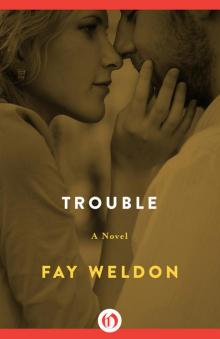 Trouble
Trouble The Heart of the Country
The Heart of the Country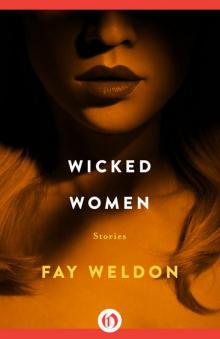 Wicked Women
Wicked Women Mischief
Mischief Long Live the King
Long Live the King Remember Me
Remember Me Worst Fears
Worst Fears Chalcot Crescent
Chalcot Crescent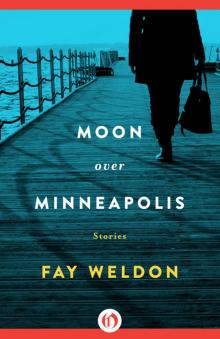 Moon Over Minneapolis
Moon Over Minneapolis The New Countess
The New Countess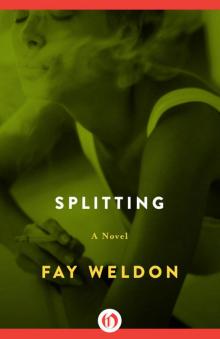 Splitting
Splitting After the Peace
After the Peace Habits of the House
Habits of the House Darcy's Utopia
Darcy's Utopia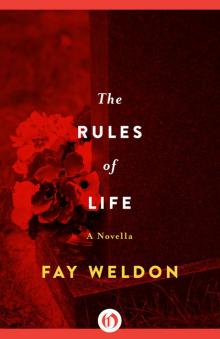 The Rules of Life
The Rules of Life Kehua!
Kehua! Before the War
Before the War Darcy's Utopia: A Novel
Darcy's Utopia: A Novel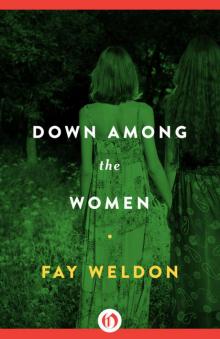 Down Among the Women
Down Among the Women Letters to Alice
Letters to Alice 3 Great Historical Novels
3 Great Historical Novels Female Friends
Female Friends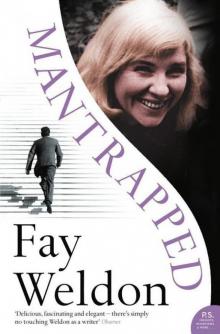 Mantrapped
Mantrapped The Bulgari Connection
The Bulgari Connection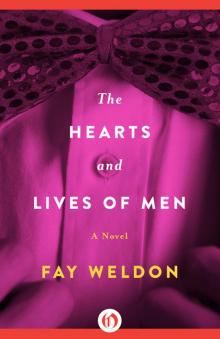 The Hearts and Lives of Men
The Hearts and Lives of Men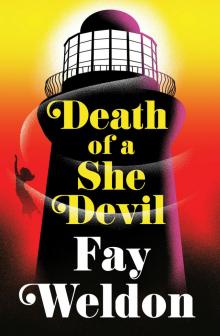 Death of a She Devil
Death of a She Devil